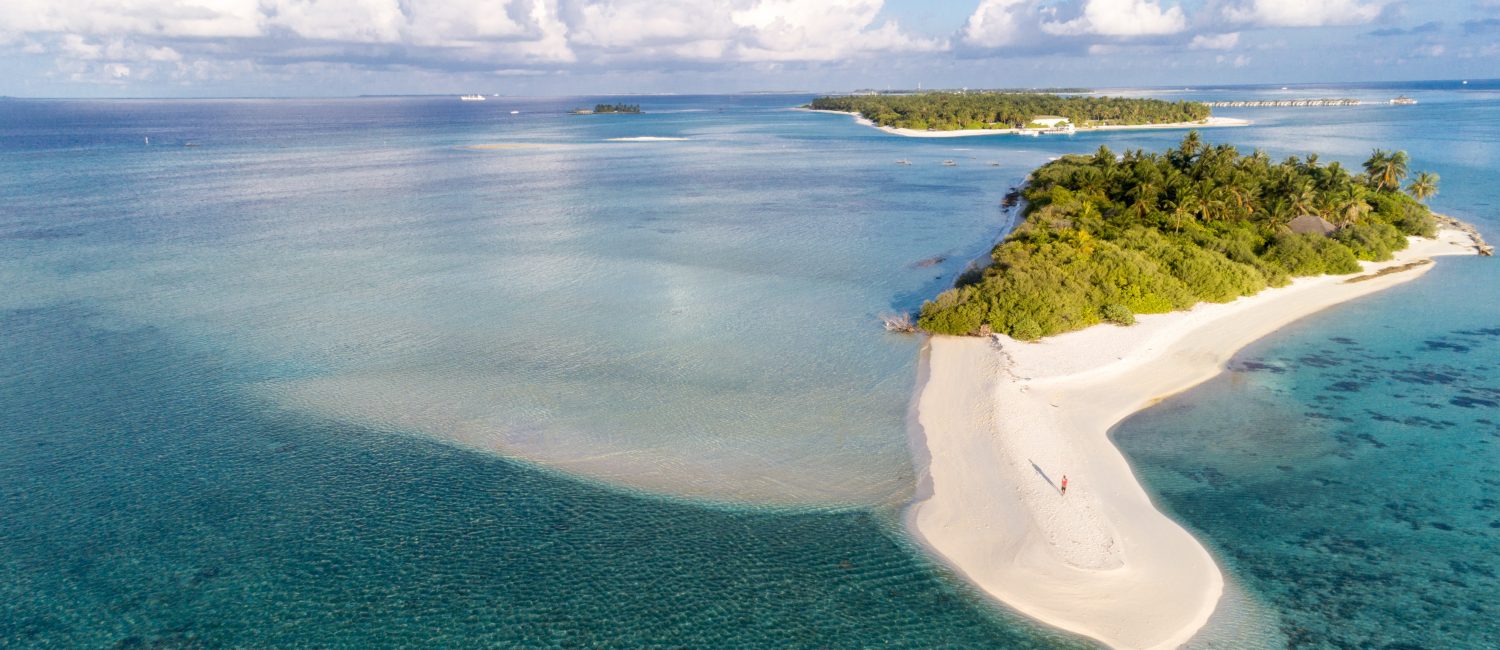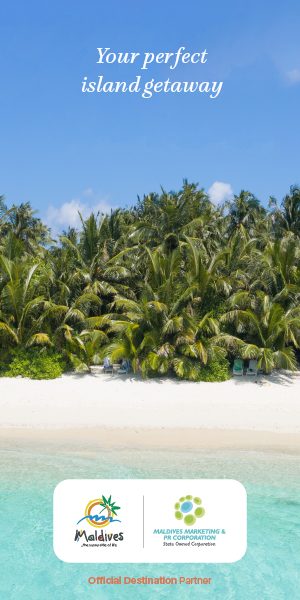The needs and requirements of the modern day traveler are changing, maybe more so than ever before following the events of 2020. Jake Kheel, Vice Presidente Grupo Puntacana Foundation states in his book Waking the Sleeping Giant said, ”Companies focused on sustainable tourism recognize that in order to have long-term economic success, they must safeguard two of their most important natural assets: people and the environment. When done right, sustainable development creates businesses that can grow and flourish in the long term, environmentally, socially, and economically.”
Accommodation providers are you ready to make that change today?
8. Encourage guests to reduce the use of electricity.
According to a survey conducted online by Booking.com in March 2021, which covered 29,000 travelers across 30 countries: 49% of travelers stated that the pandemic has made them want to travel more sustainably in the future, 73% would be more likely to choose accommodation if it has implemented sustainability practices, 72% think travel companies should offer more sustainable choices and 41% of travelers indicate that they don’t know how to find sustainable travel options.
As the travel and tourism industry looks to rebuild post the pandemic, all stakeholders have to acknowledge that sustainable tourism is not simply a temporary fad but is an unavoidable step to combine our responsibility as operators towards the environment, the needs of our guests and the economic interests of our destination and local communities.
Successful sustainable tourism requires focus and adaptation. It requires long-term thinking and realization that change is often cumulative and gradual. It is not a quick win, think of it as running a marathon not a sprint. Firm foundations are built slowly and surely and not overnight.
Education and communication play a vital role in the growth of sustainable tourism. They allow people to make informed decisions, take considered actions and understand how their decisions and actions make an impact, positively or negatively.
Education and communication play a vital role in the growth of sustainable tourism. They allow people to make informed decisions, take considered actions and understand how their decisions and actions make an impact, positively or negatively.
The biggest impact concerns for travelers highlighted in the survey include:
46% Excess waste (e.g. single use plastics).
38% Threats to local wildlife and natural habitats.
30% Overcrowding popular sights or destinations.
29% CO2 emissions.
38% Threats to local wildlife and natural habitats.
30% Overcrowding popular sights or destinations.
29% CO2 emissions.
The full report can be found here.
Since the reopening of the Maldives border in July 2020 we have seen many resorts announcing and marketing environmental initiatives and introducing sustainable practices which is all very positive. However, local island guesthouses and hotels now also need to keep up with this increasing requirement of their guests.
Booking.com are already exploring ways to highlight sustainable practices at listed accommodation providers and provide support and information to their partners which will be of benefit to accommodation providers in the local tourism sector. Converting to operating as a sustainable accommodation provider should be seen, as previously mentioned, as a long term process, one that is planned and taken step by step. There are actions that can be implemented easily and at little cost. There will be those that once implemented will be cost saving and then there will be actions that will take time and effort to establish.
Accommodation providers are you ready to make that change today?
The following are just a few examples of actions that can be taken by all accommodation providers, it is not an exhaustive list, but by putting these into action you will be taking the right steps towards making your business more sustainable.
1. Get rid of the plastic straw!
The easiest way to avoid the plastic straw is to simply not offer them or provide stainless steel, glass or paper straws which decompose naturally. With the phase out of Single Use Plastic launched in the Maldives on the 1st June, this is a no brainer!
The easiest way to avoid the plastic straw is to simply not offer them or provide stainless steel, glass or paper straws which decompose naturally. With the phase out of Single Use Plastic launched in the Maldives on the 1st June, this is a no brainer!
84% of travelers want to reduce general waste on future trips.
2. Remove plastic water bottles!
Offer glass water bottles in the rooms and at meal times. Long term consider an osmosis water filter system but in the interim refill the guest room water bottles daily from larger water containers. This is a cost saving in itself as removes the need to purchase multiple single-use water bottles.
2. Remove plastic water bottles!
Offer glass water bottles in the rooms and at meal times. Long term consider an osmosis water filter system but in the interim refill the guest room water bottles daily from larger water containers. This is a cost saving in itself as removes the need to purchase multiple single-use water bottles.
3. Install a water refill station.
Provide guests with a central point where they can refill reusable water bottles, this again reduces the need for smaller bottles. You could even provide your own branded reusable bottles/flasks and sell to guests.
Provide guests with a central point where they can refill reusable water bottles, this again reduces the need for smaller bottles. You could even provide your own branded reusable bottles/flasks and sell to guests.
43% of travelers took their own reusable water bottle, rather than buying bottled water while on vacation.
4. Rethink your bathroom amenities.
Stop using tiny liquid soap, shampoo and body wash bottles. Replace with larger refillable dispensers or non plastic containers. If you offer your guests soap, shower caps, cotton buds. combs etc ensure these are not made of or wrapped in plastic. Bamboo and wood items are now far more readily available.
5. Consider your tea and coffee options.
Nearly every hotel offers free coffee and tea stations in rooms and generally they, together with milk cartons, are provided in small plastic packages. To avoid this consider using other storage methods for loose coffee and provide milk in a jug upon request. Perhaps have a centrally located tea/coffee station where guests can fill a flask with coffee or tea to take to their room.
6. Avoid the single use refreshing towel.
A more personalized option is to offer small washable cold face towels to your guest when they arrive. You also can easily fragrance the towels by adding natural oils to the water when soaking the towels before rolling them up and placing them in the fridge. Not only does this help the environment but it will reduce your costs.
7. Opt for biodegradable environmentally friendly products in sustainable packaging.
4. Rethink your bathroom amenities.
Stop using tiny liquid soap, shampoo and body wash bottles. Replace with larger refillable dispensers or non plastic containers. If you offer your guests soap, shower caps, cotton buds. combs etc ensure these are not made of or wrapped in plastic. Bamboo and wood items are now far more readily available.
5. Consider your tea and coffee options.
Nearly every hotel offers free coffee and tea stations in rooms and generally they, together with milk cartons, are provided in small plastic packages. To avoid this consider using other storage methods for loose coffee and provide milk in a jug upon request. Perhaps have a centrally located tea/coffee station where guests can fill a flask with coffee or tea to take to their room.
6. Avoid the single use refreshing towel.
A more personalized option is to offer small washable cold face towels to your guest when they arrive. You also can easily fragrance the towels by adding natural oils to the water when soaking the towels before rolling them up and placing them in the fridge. Not only does this help the environment but it will reduce your costs.
7. Opt for biodegradable environmentally friendly products in sustainable packaging.
A sustainable purchasing policy can incorporate a whole range of items from cleaning supplies to paint to light bulbs and office supplies. The greater the demand in the Maldives the easier and more cost effective it will be to obtain such items. Consider partnering up with other properties and buying in bilk to reduce expenditure.
8. Encourage guests to reduce the use of electricity.
Key cards are a great way to control the use of electricity but are not quick and easy to install. In the interim be sure to clearly display signage in guest rooms asking guests to turn off AC units and lights when they leave the room. Be sure to provide an explanation of why you are asking them to do so!
45% of travelers made a conscious decision to turn off their air conditioning/heater in their accommodation when they weren’t there.
9. Encourage guests to reuse their towels and not to leave taps running
A simple sign in the bathroom with an explanation of why you are asking the guest to reuse towels and not leave taps running can make all the difference.
40% of travelers said they reused the same towel to reduce water usage.
10. Compost food from your kitchen.
Establish processes to compost waste, which can in turn support sustainable gardening practices on islands. Why not even create your own kitchen garden?
11. Initiate Beach Cleans
Hold weekly or monthly clean up events with your staff and guests. Even encourage your guests to collect plastic when they return from the beach. You could offer an incentive in return. Join forces as an island with Parley Maldives to recycle plastic waste.
12 Communicate and educate your team
Take time to communicate and educate your staff on why sustainability is important, no matter what size your team is. Every member of your team needs to understand what actions are being taken and why they are being taken, as well as the part they play in delivering them. The actions and behaviors of your team will also demonstrate to guests your commitment to sustainable tourism.
By following or adopting these simple and effective points you will not only reduce your impact on the environment but over time you will also decrease your costs. Guests will spread the word about your efforts and you will start to stand out from the crowd.
By following or adopting these simple and effective points you will not only reduce your impact on the environment but over time you will also decrease your costs. Guests will spread the word about your efforts and you will start to stand out from the crowd.
Secret Paradise Maldives conducts annual audits of their guesthouse properties which includes a review of responsible and sustainable practices. We offer support and advice on improvements and opportunities for partner property owners. Our guides provide a trip report following each tour which also highlights best practice or improvement opportunities whilst our guests complete feedback forms providing the chance to feedback and comment on sustainable practices.
We all have a part to play in sustainable development and surely in a destination such as the Maldives it is our responsibility as tourism industry stakeholders to make that difference.





